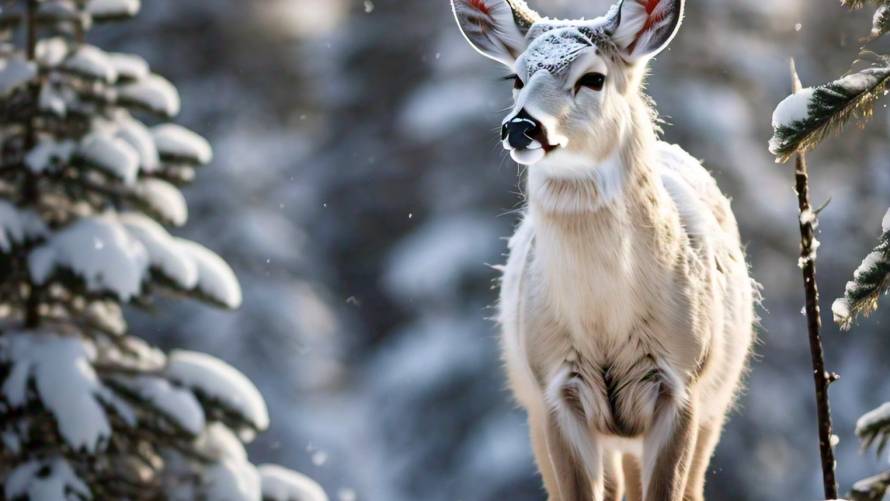As the climate changes, white-tailed deer are adapting by expanding their range into the boreal forest of Western Canada, according to a new study by researchers from UBC Okanagan and their partners. Over the past century, these deer have greatly increased their presence in North America, and this expansion is now uprooting existing predator-prey dynamics in the boreal forest.
Deer as Ecosystem Disruptors
Melanie Dickie, a doctoral student with UBC Okanagan’s Wildlife Restoration Ecology Lab, explains that the expansion of white-tailed deer into the boreal forest has been linked to declines in threatened woodland caribou populations. “Deer are ecosystem disruptors in the northern boreal forests. Areas with more deer typically have more wolves, and these wolves are predators of caribou—a species under threat. Deer can handle high predation rates, but caribou cannot,” she says.
The researchers monitored the white-tailed deer’s movement into the western boreal forest for more than five years using 300 wildlife cameras. They found that deer density was significantly lower in areas with colder, snowier winters, while human land use was associated with higher deer densities. However, the effect of climate was much stronger than that of human-caused habitat change.
Climate Change and Caribou Recovery
As global temperatures continue to rise, winter severity is expected to decline, which means that deer are likely to keep expanding northwards and increasing in abundance. This adds an increased risk to the already threatened caribou populations.
Dr. Adam Ford, one of the study’s authors, emphasizes the need to consider these new forest residents when planning for caribou recovery. “We are now well into the United Nations Decade on Ecosystem Restoration, but when doing restoration, we have to account for new pathways of species interacting in the food web,” he says.
The study, published in the journal Global Change Biology, highlights the complex interplay between climate change, habitat alteration, and species interactions in the boreal forest. Understanding these relationships is crucial for developing effective conservation strategies and protecting threatened species like the woodland caribou.

